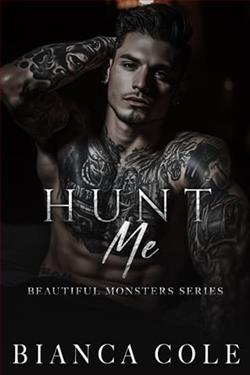Page 50 of Trapped with the Forest Ranger
“Peace offering.” He gestures to the steaming mug waiting for me. “Sorry about before. The news caught me off guard.”
His honesty cracks the ice. I slideonto the stool beside him, close enough that our knees brush, deliberately choosing proximity.
“Me too.”
He raises an eyebrow, a silent invitation to expand and share my thoughts.
“I’m not ready to leave.” The words cost more than I expect. “Which is ridiculous. I have deadlines and responsibilities. But?—”
“But?” His voice is low, cautious hope flickering beneath the surface.
I meet his gaze, giving him the truth he deserves. “I’m not ready for this to end.”
“There’s no reason to pretend this wasn’t always meant to end." He holds my gaze, jaw tight, voice rough with conviction. "We both knew what this was—went into it with our eyes wide open. No promises, no illusions.”
"Right."
The word tastes like regret, sharp and unexpected. I look down, tracing the rim of my coffee mug with a finger, trying to hide the sting in my eyes.
I should agree, should feel relief at the boundaries we drew so carefully, but all I feel is the ache of wanting more. The rules we set suddenly feel like a cage.
"Yeah. No illusions." I force a small, brittle smile, but my voice comes out softer than I intend.
His hand finds mine on the table, fingers rough and sure as they lace through mine. He doesn’t let go, not even as we eat—one-handed, unwilling to break this small, defiant connection.
After breakfast, he outlines his tasks for the day, which include routine maintenance, wildlife checks, and data recording. But instead of assuming I’ll stay behind, he frames each as an invitation, his voice steady but his eyes searching.
“I’d like to come with you.” My camera is already in my hands, the familiar weight grounding me. “If that’s okay.”
“More than okay.” His smile is slow, transforming, banishing the last of the morning’s tension.
We spend the morning together, moving through the quiet rituals of his world. At the wildlife enclosures, I watch him work—gentle with a fledgling hawk, precise as he splints a squirrel’s leg, his voice low and calming as he releases a rabbit back into the wild.
I capture it all through my lens, but it’s his hands, his focus, his rare, unguarded smiles that draw my attention.
“You’re staring at me, not the animals.” His voice is gruff, but there’s a glimmer of amusement.
“You’re more interesting.” I lower the camera, unashamed. “The way you handle them—it’s like you’re speaking a language most people have forgotten.”
“Just doing my job.” A flush creeps up his neck, the vulnerability endearing.
“It’s more than that.” I snap one last photo—his profile against the green, the lock of hair falling across his brow. “You listen to them. You respect them. It’s beautiful.”
He clears his throat, uncomfortable but pleased. “Kim used to say the same thing.”
This time, her name doesn’t land between us like a wound. It’s just part of his story, a ghost acknowledged and honored.
“She was right.” I move closer, letting my fingers brush his arm. “You have a gift.”
“Hungry?” He glances down, then gestures toward the cabin.
We return for lunch, then spend the afternoon in his office, poring over years of handwritten notes, maps, and photographs. I’m awed by the scopeof his work—the patterns, the painstaking detail, the quiet passion on every page.
“This is incredible.” I flip through a binder, studying seasonal photographs of the same mountain pass. “Have you ever published any of this?”
He looks genuinely surprised. “Published?”
“In journals, magazines. This is valuable. You’re documenting climate change, adaptation strategies—this could help conservation efforts everywhere.”















